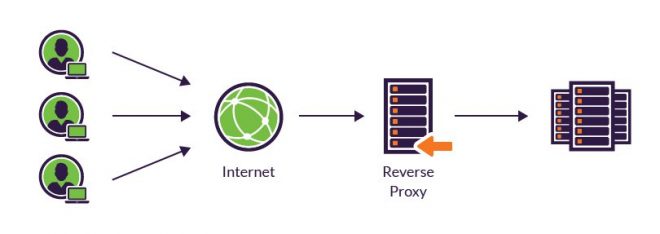In today's online landscape, online privacy and security have become essential concerns for individuals and businesses alike. With the growing threats of data breaches, monitoring, and tracking, many are looking to proxies as a solution for browsing the web anonymously. But what is a proxy, and how does it work? At its core, a proxy server acts as an intermediary between your device and the internet, allowing you to access online materials while hiding your IP address. This not only aids in protecting your identity but also improves your online experience by providing entry to geo-restricted materials and boosting browsing speed.
As you dive further into the world of proxies, you will discover various types, each designed for specific purposes, ranging from simple web browsing to advanced data scraping and market research. Understanding the benefits and potential risks associated with various proxy types is crucial for anyone looking to enhance their online security and privacy. Whether you are a company looking to safeguard sensitive information, a gamer aiming to reduce latency, or simply a user looking to keep your browsing habits secret, this article will guide you through the essential aspects of proxies and how they can enhance your online presence.
Understanding Proxy servers
Proxies act as middlemen between your device and the internet. As you connect to a proxy server, your inquiries for web data are initially routed through the proxy server instead of going directly to the target website. This means that the site sees the proxy's IP address rather than your own, providing a level of concealment and secrecy. By hiding your IP address, proxy servers can help maintain your online activities more protected and confidential.
There are different kinds of proxies, including HTTP, SOCKS, and transparent proxies, each serving distinct purposes. HTTP proxies are suited for web browsing, while SOCKS proxies can manage various types of traffic. Transparent proxies, on the other hand, do not modify inquiries and can be employed for content filtering. Comprehending these kinds helps individuals choose the appropriate server for their requirements, whether it be for privacy or functionality.
The benefits of using a proxy server extend beyond anonymity; they can also improve security, enhance online secrecy, and overcome geo-restrictions. For individuals, this means accessing information that may be blocked in their region. For businesses, proxy servers can strengthen data security by protecting against security threats and reducing the risk of vulnerability to malicious threats. By incorporating proxies into their online activities, users can navigate the web with greater confidence.
### A Comparison of Proxy Servers and VPNs
In the realm of methods for enhancing online privacy and security, numerous users find themselves weighing the benefits and drawbacks of using VPNs versus proxy servers. Proxies act as intermediaries for users connecting to the internet, routing requests through a different IP address, which can help mask the user's true identity. Yet, they generally lack traffic encryption, implying that even if users attain a certain level of privacy, their data may still be vulnerable to interception by third parties. In contrast, VPNs leverage encryption to safeguard the user's information, making them a more comprehensive solution for online safety and privacy, especially when accessing sensitive information.
Another important distinction lies in the level of functionality available with each choice. Proxies prove beneficial for specific tasks such as overcoming geographical restrictions, accessing blocked content, or content extraction. Proxies often operate at higher speeds compared to VPNs since they do not incur the same performance hit from encryption. Despite this, they often lack the robust security features that are available through VPNs, rendering them less appropriate for users looking to safeguard their online activities from potential threats. Omeka.net are more versatile when it comes to securing information across multiple applications and devices, not just web browsers, which increases their application for individuals wary of their complete digital presence.
Ultimately, the decision between a proxy and VPN will be influenced by personal requirements and applications. For those mainly focused on browsing anonymously or visiting certain sites, proxies may suffice. Conversely, for those seeking an all-encompassing solution that provides high levels of security and privacy, a VPN is probably the superior choice. Understanding these distinctions can help users make informed decisions tailored to their online behaviors.
Advantages and Risks of Using Proxy Servers
Using proxies provides several benefits for people and organizations aiming to improve their online privacy and safety. One of the key advantages is privacy; by redirecting your internet traffic through a proxy, your true Internet Protocol address is masked, making it harder for websites and internet services to monitor your behavior. This can be particularly advantageous for people concerned about their online footprint or potential security breaches. Additionally, proxy servers can assist users bypass geo-restrictions, allowing access to resources that may be blocked in certain regions, thus broadening the scope of online resources accessible.
However, there are dangers associated with employing proxy servers, especially those that are free. Many free proxy servers may not provide sufficient protection, leaving users exposed to data interception and malware. They could record your browsing habits and expose your personal information to external entities. Moreover, some proxies can in fact slow down your internet speed or lead to poor connectivity, which can hinder your internet experience. It’s essential to practice caution and choose reputable proxy services that prioritize user safety and privacy.

In business environments, while proxy servers can enhance efficiency and security, improper management can result in potential risks. For example, poorly configured proxies may result in sensitive information leaks or unauthorized access to sensitive information. Businesses must carefully evaluate their proxy server options to guarantee that they are creating a secure network environment without inadvertently exposing their systems to threats. Ultimately, grasping both the benefits and dangers is essential for taking informed decisions about integrating proxy servers into your online activities.
